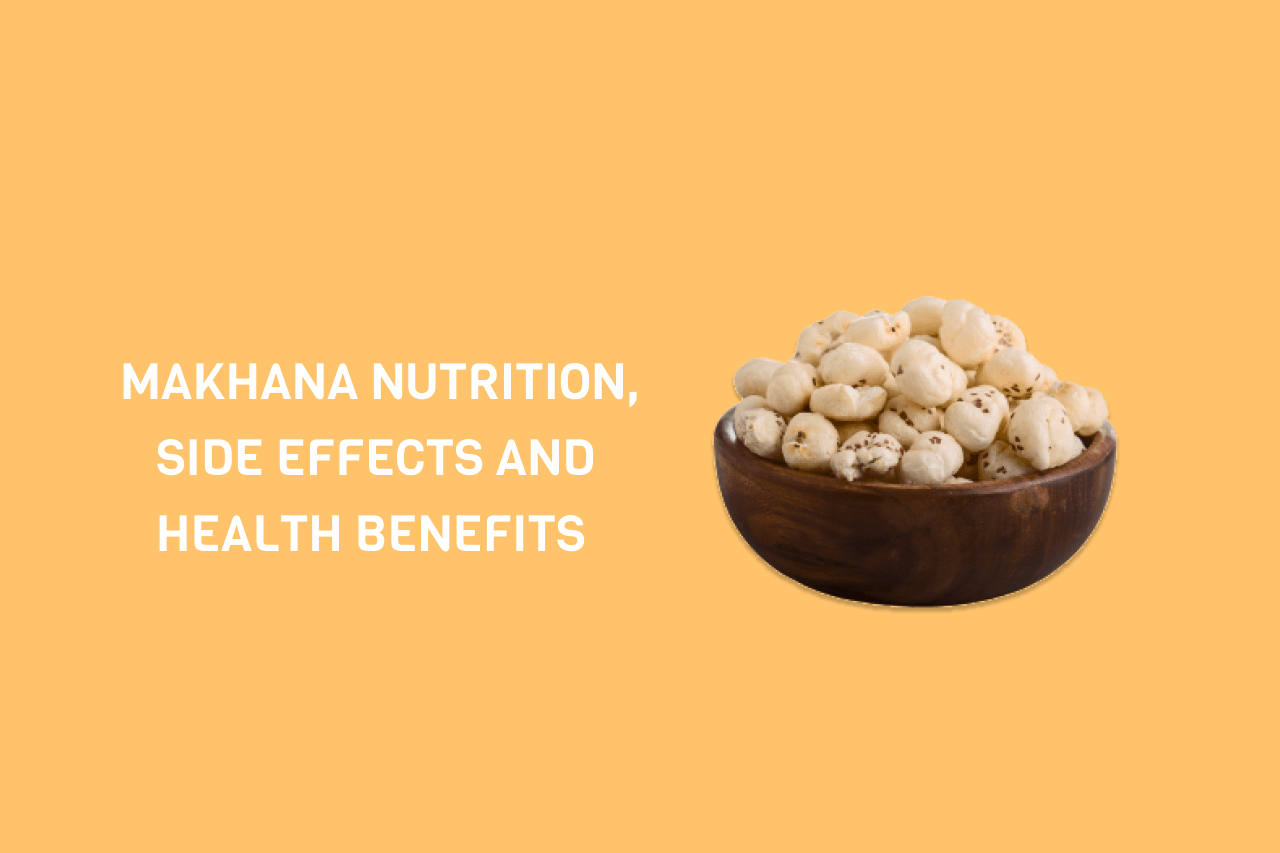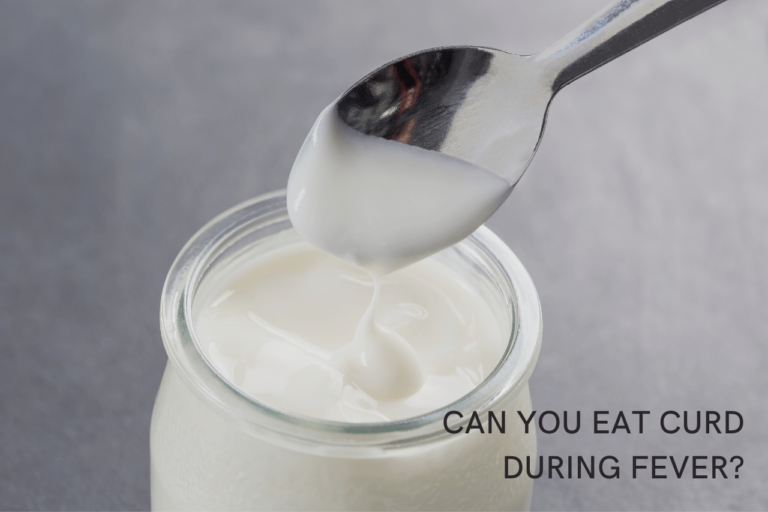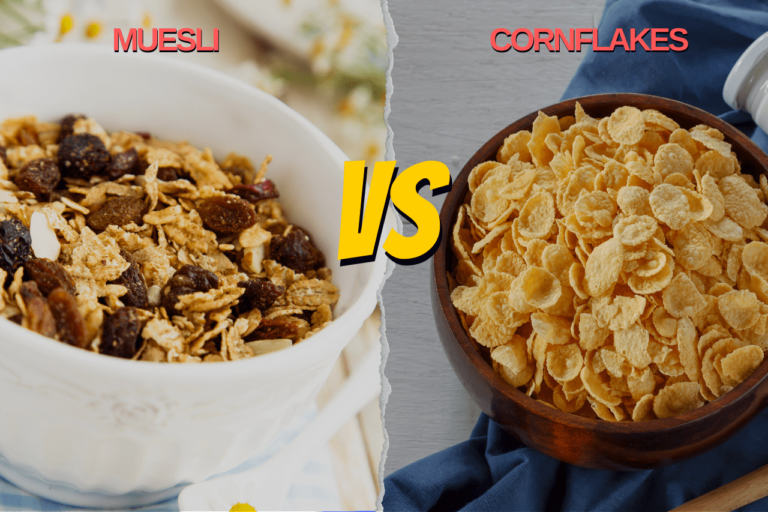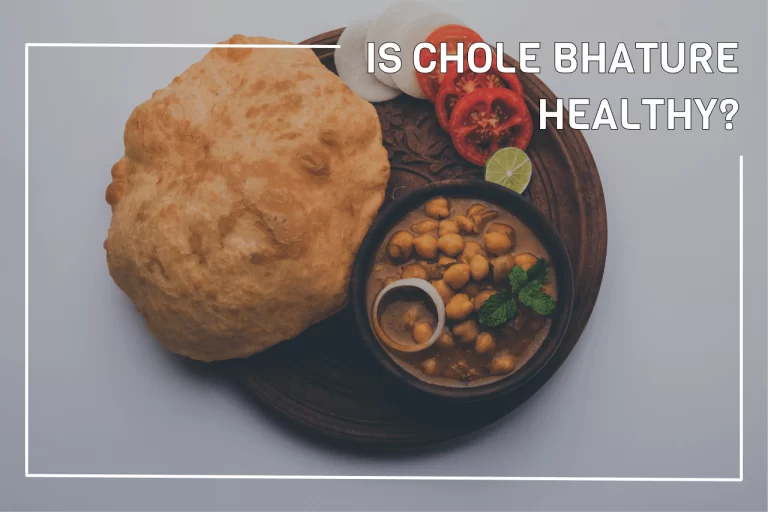Makhana, also known as fox nut, is a traditional Indian dried fruit with several health benefits. It has been used in many Ayurvedic and Chinese medicine and offers relief to many health conditions.
It is a lightweight product high in nutrition, low in cost, and commonly consumed in India in the form of snack, sweets, and in a wide range of other dishes similar to other types of dry fruits such as raisins.
Don’t worry if you want to incorporate Makhana into your diet but aren’t sure how. This post will provide you with all of the necessary information regarding the nutrition, side effects, and health benefits of Makhana.
Nutritional value of Makhana

The fox nut or Makhana is a nutritional powerhouse and can be eaten year-round. It contains a wide range of nutrients which makes it a healthy choice for your daily diet.
It is an excellent source of potassium, magnesium, protein, thiamin, and phosphorus. Also, it is high in fiber, which is essential to lower cholesterol levels and manage blood pressure.
Here is the complete nutritional value of Makhana that you may found helpful.
| Nutrients | Quantity(100g) |
|---|---|
| Calories | 350 |
| Fat | 0.1g |
| Carbohydrates | 77g |
| Protein | 9.7g |
| Cholesterol | 0 |
| Fiber | 14.5g |
| Calcium | 60mg |
| Magnesium | 67mg |
| Iron | 4.5g |
| Phosphorus | 200mg |
| Potassium | 500mg |
| Sodium | 210mg |
Makhana: Is it good for health?
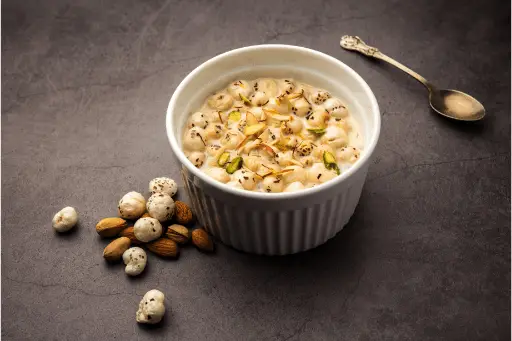
Whether it’s about a healthy diet or eating them as a hobby, they are always good for your bodies, and Makhana is one of them.
Makhana(fox nuts) has become extremely popular in most health circles. People are recommending it for its most potent health benefits. Are they true? Are they merely marketing gimmicks?
Keep reading, and you’ll find out the answers.
After knowing the nutritional value of Makhana, it’s no surprise that this dried fruit provides us with so many healthy nutrients.
Now, let’s take a look over the health benefits of Makhana.
Rich in dietary fiber
Fiber is an essential part of a healthy diet because it helps lower cholesterol, control blood sugar levels, and maintain bowel health. It also helps you feel full and make you eat less, so it’s essential for weight loss management.
A lack of fiber in the diet can lead to constipation, hemorrhoids, diverticulitis, varicose veins, and other conditions.
Makhana is high in dietary fiber, making it an essential item to include in your regular diet.
Related reading: 9 Best Dry Fruits for Weight Loss that Actually Works
Reduce cholesterol levels
Cholesterol is a soft, waxy substance that is made by the liver in your body. There are two types of cholesterol. HDL(Good Cholesterol) and LDL( bad cholesterol).
HDL is believed to be good for your body, while LDL isn’t. If you have high levels of LDL, it can build up in the arteries, making them hard and narrow, which can lead to heart disease.
Makhanas are high in soluble dietary fiber, which aids in the reduction of bad cholesterol in the body.
They also include niacin, often known as vitamin B3, which is helpful in the reduction of bad cholesterol levels in the body by boosting the activity of an enzyme that aids in the breakdown of LDL cholesterol.
Improve digestion
It is, in fact, true that those who do not have a strong digestive system are unable to appreciate food and life fully.
Apart from being high in vitamins and nutrients, makhanas are also known to be good for digestion.
So, if you are looking for something that is easy to digest and also improve digestion in the body, makhanas are the right choice for you.
Reduce hypertension
Hypertension, commonly known as high blood pressure, is a condition in which the artery pressure remains consistently high. It is also often called the silent killer because it has no symptoms. It raises the risk of heart failure, heart attacks, and strokes in people.
Makhana is high in potassium, magnesium, and dietary fiber, which are beneficial to those who suffer from hypertension.
It also has a low sodium content, which is good for those with hypertension because high sodium consumption is harmful to them.
Use in Ayurveda and Chinese medicines
While some people use makhana as a part of their daily diet, others use it as a herbal remedy to remove the ailments from their life.
Makhana is one of those superfoods that has long been utilized in the treatment of diabetes, hypertension, anemia, and cancer in Ayurveda and traditional Chinese medicine.
Good for anemia
Red blood cells or RBC are the main components that carry oxygen to different parts of your body to work efficiently. If for any reason, the production of RBC gets reduced in the body, this leads to a condition called anemia.
The most common reason for anemia is a lack of iron. Iron is essential to make hemoglobin, the protein in red blood cells that actually carries oxygen to cells and organs.
Eating Makhana, which is high in iron, ensures that your body receives enough iron and reduces your risk of anemia.
Rich in antioxidants
Antioxidants are molecules that protect your bodies from damage caused by free radicals. Free radicals are molecules found in the food, or they can enter your body from external sources (pollution, smoking, radiation, and medication).
When the number of free radicals gets overloaded in the body, it leads to a condition called oxidative stress. As a result, it increases the risk of cancer, aging, cataract, arthritis, and cardiovascular disease in the body. This also damages your body cells and the genetic material (DNA) which makes up your bodies.
On the other hand, the human body creates a defense mechanism to combat this situation by producing antioxidants within the body.
However, if the body’s production of antioxidants is insufficient to neutralize all free radicals, we must consume antioxidant-rich foods.
Makhana is high in antioxidants such as gallic acid, chlorogenic acid, and epicatechin, which can assist your systems in fighting free radicals.
Good for skin
It is essential to take care of skin since it is your first line of protection. Also, the skin is the largest organ in the human body and is directly exposed to the sun, pollution, and other radiation harmful to the skin.
Being a rich source of antioxidants and other amino acids, Makhana is beneficial for your skin. It helps to prevent acne, wrinkles, and the early symptoms of aging on the skin.
Apart from that, Makhana is also a good source of protein, which is essential for building and maintaining muscle and the skin.
Keratin, which takes approximately 90 percent of the skin, is made up of protein. Without keratin, the skin would be dehydrated, weak, and would crack.
So eating a diet that contains plenty of protein can be beneficial for the skin.
Improves fertility in men
Male infertility is a common condition that affects up to 20 percent of men. According to the Cleveland Clinic, infertility affects 1 in 5 couples trying to conceive. It can be caused by several factors, including low sperm count, abnormal sperm shape or motility, or physical blockage of the reproductive system.
A handful of Makhana’s a day can be very beneficial to males as it can help in increasing testosterone levels, sperm count, and sexual desire in men. While in women, it may improve the functioning of the reproductive system.
Good for bones
According to research, calcium is necessary for the formation of bone. The question is, how much?
The Nutritions at Harvard recommends about 500 to 700 mg a day of calcium a day.
Makhana is a rich source of calcium, and including it in your diet will help you meet your daily calcium requirements while also strengthening your bones and teeth.
Good for hair
As we all know, hair is one of the most important factors defining a person’s beauty. It also tells a lot about a person’s health and lifestyle.
One of the most effective methods to show your hair how much you care is to include Makhana in your diet. It contains a lot of protein, which is beneficial for hair development.
Furthermore, research has revealed that free radicals in bodies cause your hair to look unattractive and age faster. That is why it is critical to consume Makhana, which is high in antioxidants.
Low in glycemic index
A low glycemic index food is food that will give you a slow and steady supply of energy. These foods are digested slowly, and therefore they do not give you quick energy.
Because low glycemic index foods have little natural sugar, they do not raise blood sugar or insulin levels.
Foods with a low glycemic index, such as Makhana, are beneficial for people with diabetes who need to keep their blood sugar under control.
Are there any side effects of makhana?
Whenever we consider eating something, we must be aware of its advantages and disadvantages and then decide whether to eat.
Although there is little information on the side effects caused by Makhana, they may arise in rare circumstances, such as when used in large amounts. The side effect may include allergic reaction, constipation, bloating, and nausea.
Also, if you’re on any medication and want to incorporate Makhana into your diet, talk to your doctor first.
How much makhana should you eat?
The amount of Makhana you should eat depends mainly on your lifestyle and health goals. If you’re on a weight-loss plan, it is safe to have 100 grams of Makhana each day; you can consume twice as much if you wish to gain weight.
However, for most people, consuming 1-2 handfuls of Makhanas each day is healthful and safe.
Final words
It’s now clear that incorporating a dried fruit like Makhana into one’s diet can provide a plenty of benefits.
I hope that you enjoyed this post about the nutrition, side effects, and benefits of Makhana. With this information, you will now have an idea of what Makhana is, and what you can expect from it.
References:
